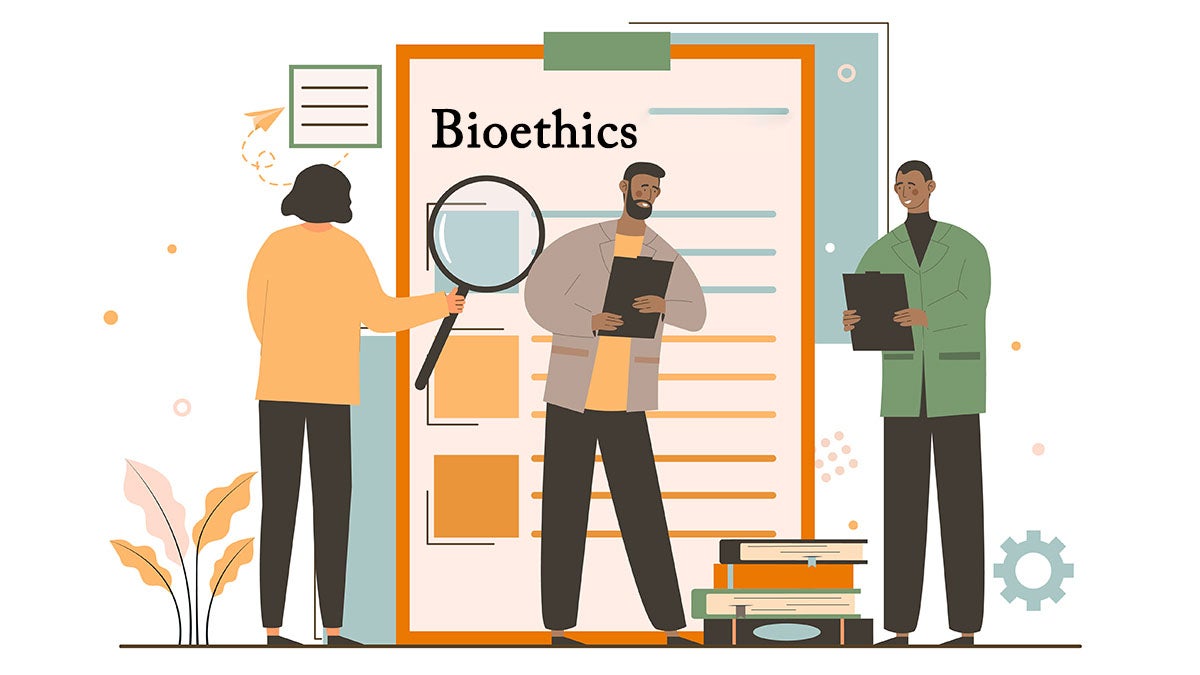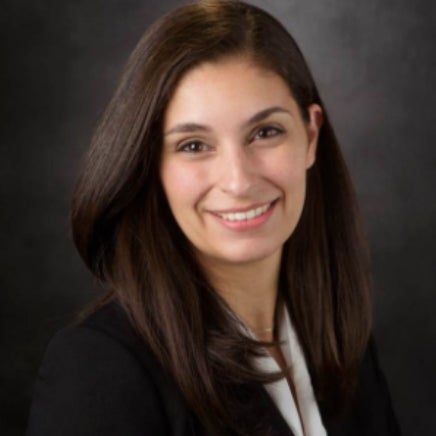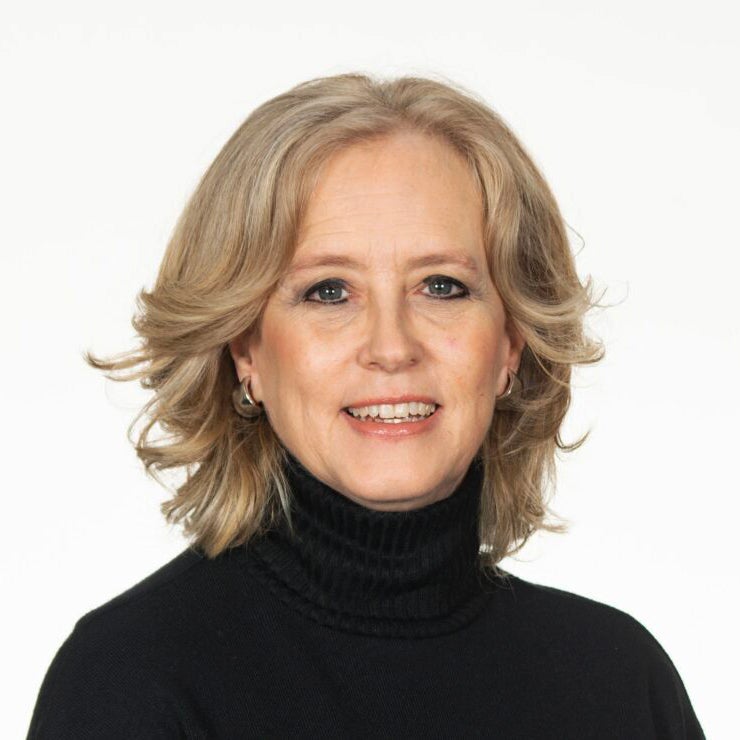Nursing and Medical Students Debate Ethical Dilemmas as Pellegrino Student Scholars

Posted in GUMC Stories | Tagged bioethics, cura personalis, medical ethics, Pellegrino Center for Clinical Bioethics, Pellegrino Scholars Program, student experience
(December 9, 2022) — In a clinical bioethics program unique to Georgetown, a select group of nursing and medical students — known as Pellegrino Student Scholars — work closely together as they discover that practicing cura personalis includes navigating challenging ethical decisions with their patients and families.

“Clinical bioethics provides the tools needed to navigate through ethical dilemmas at the bedside,” explained Claudia Sotomayor, MD, DBe, chief of the Clinical Ethics Consultation Service at the Pellegrino Center for Clinical Bioethics (PCCB) and one of the faculty coordinators for the semester-long Pellegrino Student Scholars course.
Sotomayor described a typical bedside scenario that students think through involving a patient in an intensive care unit who is actively dying, but the family members insist on more interventions despite the care team knowing everything has already been done.
“Our students are analyzing their medical and nursing education from a wider view, not just the biomedical, but something more complex that takes into account the values of the patient and contemplates the entire patient, including the emotional, cultural aspects of patient care as well as seeing the patient as a transcendental being,” said Sotomayor.
“We are entering a profession where ethical dilemmas will be part of our everyday lives,” said Madeline Karsten (M’25). “In our discussions, we talk about how to manage situations where your own belief system may be at odds with medical practice.”
Ethical Decision-Making
Over the course of the fall semester, the 12 student scholars met with faculty members from the PCCB to develop ethical reasoning skills through applying concepts of Edmund Pellegrino’s philosophy.
“There’s such a legacy of bioethics at Georgetown,” said Sotomayor. “All students who care for patients should be exposed to bioethics, and Georgetown has such a valuable resource with the PCCB and Pellegrino’s work.”
The late Edmund Pellegrino, MD, MACP, longtime School of Medicine faculty member and the PCCB’s namesake, was a pioneer in the field of clinical bioethics whose work focused on the physician-patient relationship, which he described as “the healing relationship.” Pellegrino acknowledged the relationship with a vulnerable and dependent patient as inherently unequal, while still seeking to develop an internal morality for medical decisions that are arrived at with the patient.

“Clinical bioethics tries to restore moral agency through logical reasoning based on virtues and ethical principles,” Sotomayor said.
Student scholars apply Pellegrino’s approach to an internal morality of medicine through discussions of ethical dilemmas, such as making end-of-life decisions.
John (“Jack”) Dowd (M’26) spoke about the unique opportunity of discussing such difficult questions. “We haven’t had any other classes yet where we can debate the gray area between right and wrong in situations where there often is no right answer,” he said. “But these situations are so important to consider early on in our careers before we are put into similar situations.”
“The topics we discuss are very important to all practicing in health care,” said Sarah Vittone, DBe, MA, MSN, RN, associate professor in the School of Nursing and faculty coordinator for the Pellegrino Student Scholars program.
Intentionally Interdisciplinary
After Pellegrino died in 2013, a group of faculty members wanted to create the student scholars program to help carry on his legacy that was intentionally interdisciplinary. In 2019, they established an interprofessional program for ethical and professional formation of medical, nursing, and graduate philosophy students comprising a series of seminars culminating in a final research project. Previous cohorts included philosophy graduate students in addition to nursing and medical students.
“Having medical students listen to nurses and philosophers, and vice versa, is one big thing we hope they take away from the course,” said Sotomayor. “A lot of the problems we receive as ethicists in clinical settings are based on communications issues between physicians and nurses, so learning how to talk about a difficult situation involving a patient interprofessionally is so valuable.”
The student scholars valued their ability to discuss such difficult topics in an interdisciplinary setting.
“One of my favorite parts of the program is having these conversations with the nursing students, who have a lot more clinical experience than we do at this point,” said Michael Covell (M’26). “The nursing students have spent more time with patients and so can see a scenario differently based on their experiences. It leads to great conversations.”
Noor Bontz (G’23), one of the Master of Science in nursing students in the program, has been a registered nurse for eight years. For the past four years, she’s worked at a hospital in Milwaukee in an underserved area. “In our discussions, I try to bring awareness to the ethics of who has access to health care, especially when I see firsthand in my work people of color crying out for help and not receiving it,” she said.
Culminating Project
Student scholars are paired with a mentor throughout the course who helps guide the student’s final project, an essay focused on an area of the student’s choosing that incorporates Pellegrino’s scholarship.
Dowd was paired with Myles Sheehan, SJ, MD, director of the PCCB and professor of medicine, whom he met with three times during the course of the semester to discuss his research project on the ethical allocation of COVID-19 vaccines to prisons when there was limited supply.
Emily Dubin (G’22) plans to examine the ethics behind the ongoing crisis of staffing shortages and burnout in the nursing profession with Vittone as her mentor.
“There seems to be a structural problem right now with our profession of nursing, and I want to focus on the ethics of the system right now, both in the ethics of how health care workers should be treated, for example, where a nurse isn’t given the opportunity to have lunch on a 16-hour shift, and in the ethics of how this system impacts patient care,” Dubin said.
The faculty of the PCCB will select the best essay from this year’s cohort to be presented at the Pellegrino Symposium in February.
Heather Wilpone-Welborn
GUMC Communications
